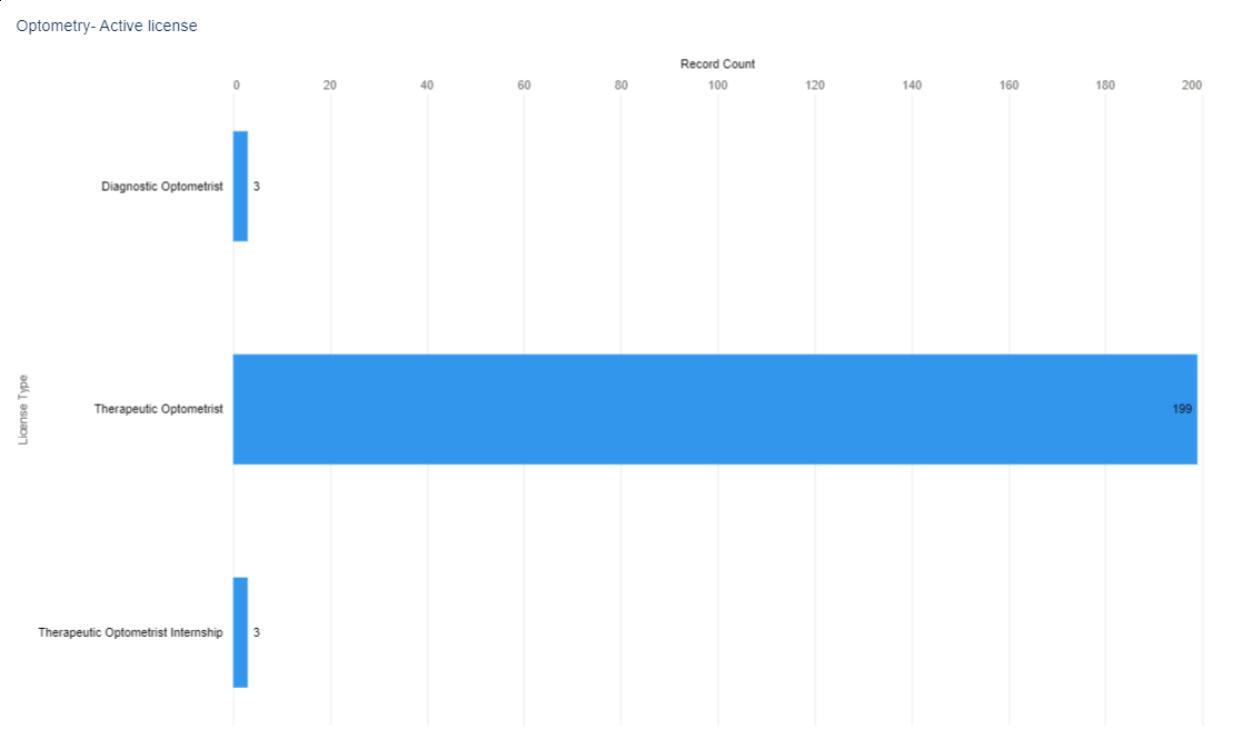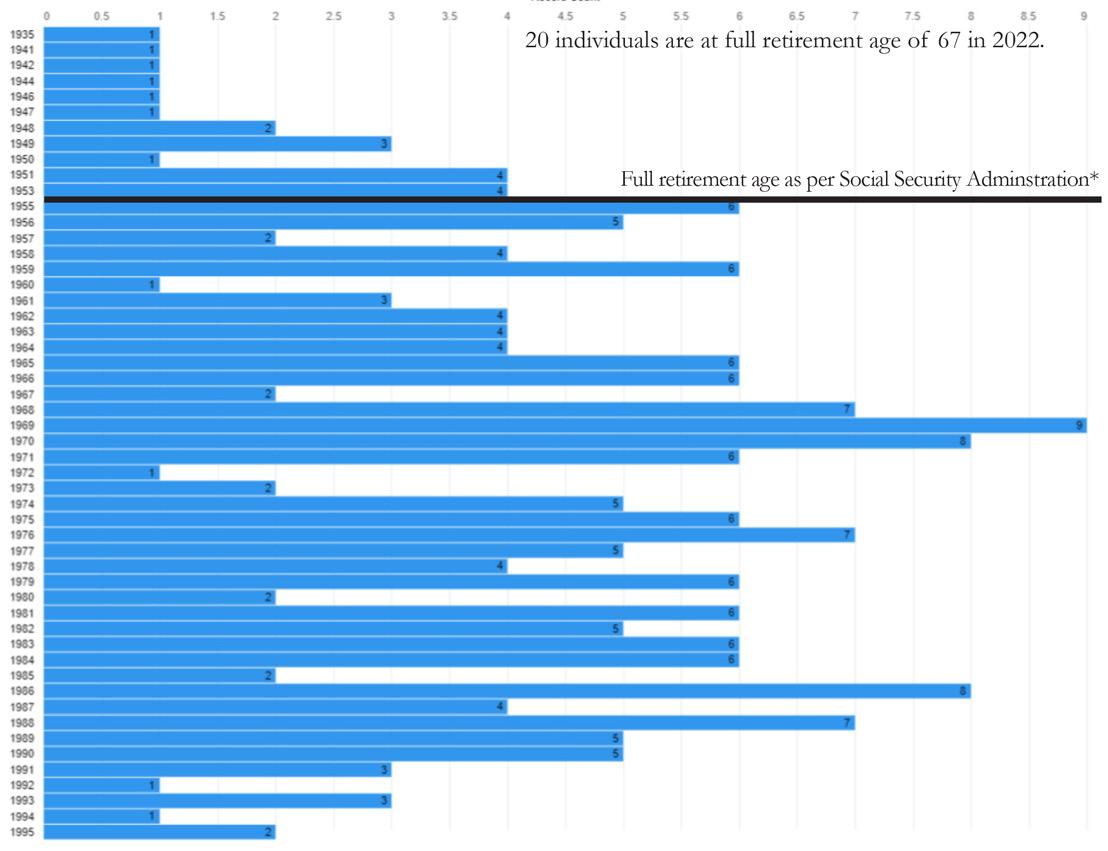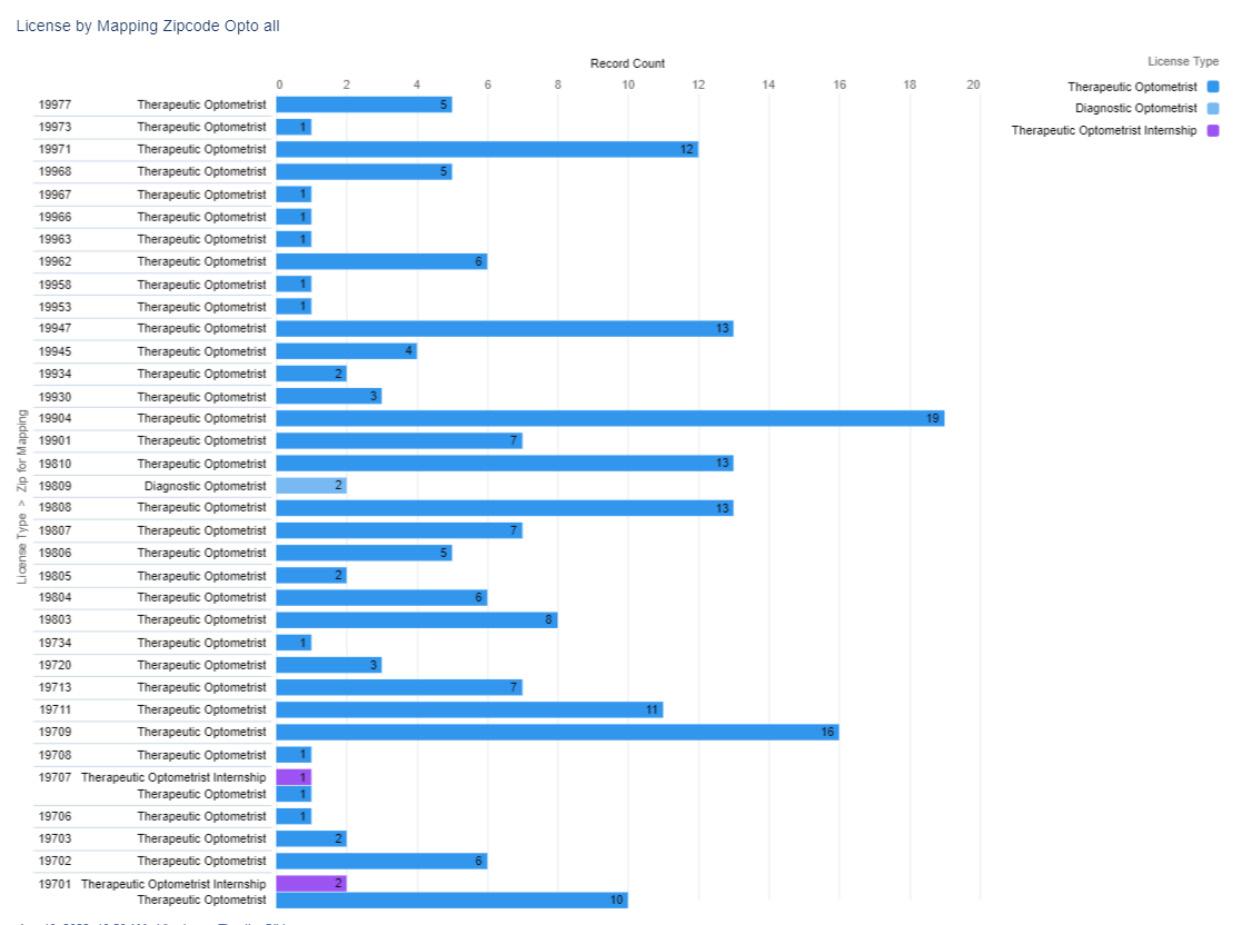
2 minute read
Board of Examiners in Optometry
from DJPH - Delaware's Healthcare Workforce
by Delaware Academy of Medicine and the Delaware Public Health Association
The primary objective of the Delaware Board of Examiners in Optometry is to protect the public from unsafe practices and practices which tend to reduce competition or fix prices for services. The Board must also maintain standards of professional competence and service delivery. To meet these objectives, the Board • develops standards for professional competency, • promulgates rules and regulations, • adjudicates complaints against professionals and, when necessary, imposes disciplinary sanctions. The Board issues licenses to therapeutic optometrists and interns (see figures 1-5). The Board’s statutory authority is in 24 Del. C., Chapter 21.
DIAGNOSTIC OPTOMETRIST
Optometrists are healthcare professionals who provide primary vision care ranging from sight testing and correction to the diagnosis, treatment, and management of vision changes. An optometrist is not a medical doctor. An optometrist receives a doctor of optometry (OD) degree after completing four years of optometry school, preceded by three years or more years of college. They are licensed to practice optometry, which primarily involves performing eye exams and vision tests, prescribing and dispensing corrective lenses, detecting certain eye abnormalities, and prescribing medications for certain eye diseases.1
THERAPEUTIC OPTOMETRIST
A therapeutic optometrist has undertaken at least one additional year of training and study, specifically in the diagnosis and management of eye diseases, in microbiology, pathology, ocular pharmacology, and in the treatment of eye conditions with Schedule 4 prescription-only medicines.
THERAPEUTIC OPTOMETRIST INTERNSHIP
To be licensed as a Therapeutic Optometrist in Delaware one is required to complete a six-month internship.
Figure 1. Active Optometry Licenses by Type*, N=205
* an active license does not guarantee an individual is actively seeing patients.

* According to the Social Security Administration “Full retirement age is the age when you can start receiving your full retirement benefit amount. The full retirement age is 66 if you were born from 1943 to 1954. The full retirement age increases gradually if you were born from 1955 to 1960, until it reaches 67. For anyone born 1960 or later, full retirement benefits are payable at age 67.‚


Figure 5 shows most, but not all, ZIP codes due to scaling limitations. Hot spots are employed to bring perspective to viewing the overall map and distribution of healthcare professionals and should not be interpreted has valuing value without referring to the numbers listed in the chart above.
Figure 5. Visual Distribution of Active Optometry Licenses by ZIP code

REFERENCES
1. Hull, J. (2019, Feb). Difference between an ophthalmologist, optometrist and optician. American Association for Pediatric
Ophthalmology and Strabismus.
Retrieved from https://aapos.org/glossary/difference-between-an-ophthalmologist-optometrist-and-optician





